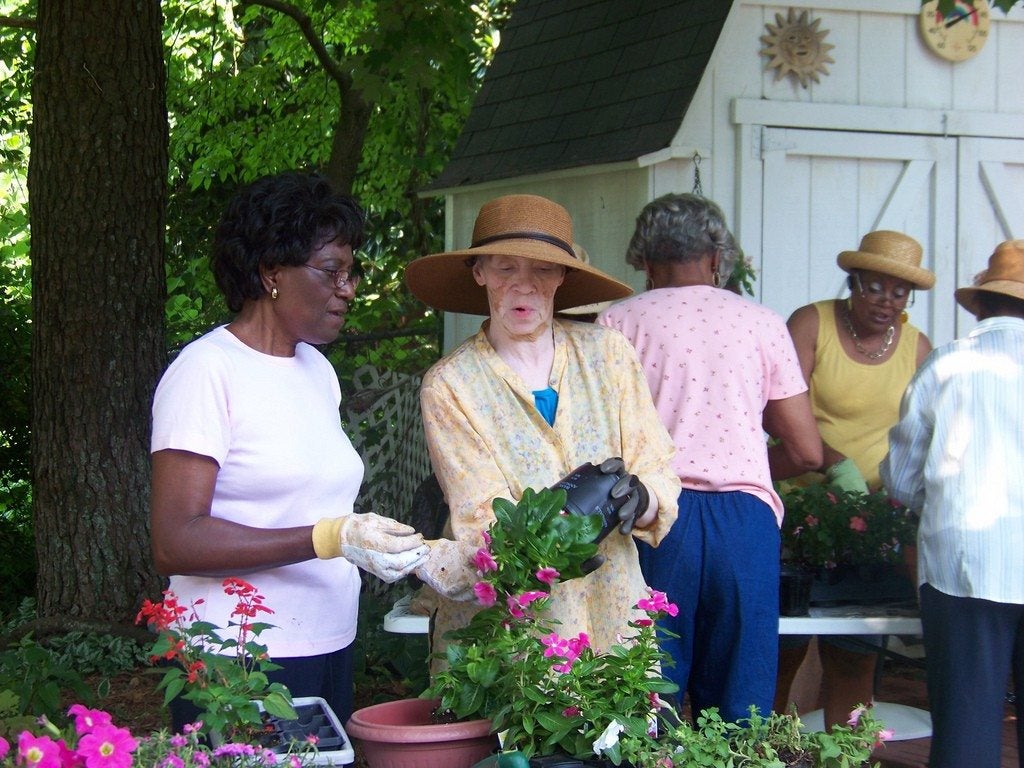Gardening With Friends: Garden Clubs And Plant Societies


Sign up for the Gardening Know How newsletter today and receive a free copy of our e-book "How to Grow Delicious Tomatoes".
You are now subscribed
Your newsletter sign-up was successful
Along with seeking out great gardening websites like Gardening Know How as fantastic places to gain experience with your gardening, seek out local societies or clubs as well. There are usually some local gardening clubs and more specific plant societies or clubs to seek out. If you love to grow African violets, orchids, or roses, there is a local society of folks to join up with. There is usually a local gardening club as well that takes in all sorts of gardening interests. Seeking out and joining a local group has the appeal of being able to not only share your own knowledge but to learn some new ways of doing things, perhaps some of those special tips and tricks that make a garden the envy of the neighborhood!
Why Join a Gardening Club?
In any kind of gardening, there are things you can do and cannot do in the various growing zones. Some of the “cans” and “cannots” are related to climatic conditions while others are soil-related. Having a local group with knowledgeable fellow gardeners on board is worth more than any book on the shelves when it comes to local growing situations. I enjoy several types of gardening, from veggies to wildflowers and annuals to roses and African violets. I even have a little interest in orchids due to family members raising them, as well as tending to a few herbs in my gardens. The various methods I use in my gardens here may not work so well in another area of the country or another part of the world. There are also different bugs, fungi, and molds to deal with in various areas. In some cases, those various pests can be extremely difficult to deal with and knowing the methods that work to control them best in your area is truly priceless information. Most of these groups have at least monthly meetings that are a mix of social time, business of the group and educational programs. Gardeners are some of the friendliest people around and the groups love to have new members. Many of the specific plant groups are affiliated with larger parent organizations where there are usually even bigger pools of information to draw from. If you love roses, for instance, the American Rose Society is the parent organization of many rose societies all over the United States. There are national gardening associations that have local gardening clubs affiliated with them as well. The gardening clubs have members with varied interests in gardening, so if you wanted to try your hand at raising some plant that you have always liked, you can obtain good information to get started right. Getting the right information to get off on the right foot with any type of gardening is invaluable. Solid information truly saves hours of frustration and disappointment. For example, I have had many people over the years tell me it is just too hard to grow roses, so they gave up. Come to find out most of them had started out trying to get the cheaper big box store bagged roses to take off in their gardens. They were not aware of the root problems many of those rose bushes have from the beginning, thus when the rose bushes died they blamed themselves. Actually they had two strikes against them before they even started. It is information like this that a gardener can get from local knowledgeable plant societies or garden clubs. Information about how to best amend the soil for your gardens in your particular area can be obtained from these groups as well. I highly recommend attending some meetings of local gardening groups in your area and see what they have to offer. Perhaps you have some great knowledge to share with a group too, and they really need someone like you. Being a member of such gardening groups is not only enjoyable but is also quite rewarding.
Sign up for the Gardening Know How newsletter today and receive a free copy of our e-book "How to Grow Delicious Tomatoes".

Stan V. Griep contributed to Gardening Know How for many years and has been a Colorado Native Rosarian for over four decades. He is an American Rose Society Certified Consulting Master Rosarian in the Rocky Mountain District, and a member of the Denver Rose Society, the Loveland Rose Society, and the American Rose Society. He is Gardening Know How's in-house expert on all things roses.